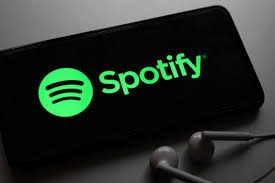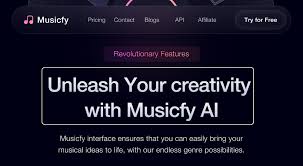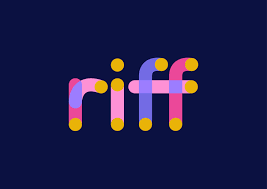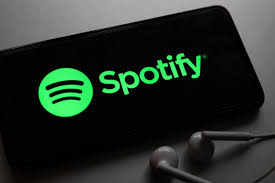Introduction: Why Spotify's AI Music Problem Is Bigger Than It Appears
At first glance, AI-generated music on Spotify may seem like an innovation—more music, more choice, and a democratized platform. But dig deeper, and you’ll find something far more troubling: Spotify is quietly drowning in synthetic tracks, often uploaded in bulk, with little to no human oversight.
This flood of algorithmically generated music isn't just disrupting royalties and playlists—it’s fundamentally changing what Spotify is and who it serves. And yes, the AI music problem on Spotify is worse than you think.

The Scale of the AI Music Problem on Spotify
In 2023 alone, Spotify added over 120,000 new tracks per day. According to industry watchdogs and metadata analysis platforms like Chartmetric and Music Business Worldwide, a growing percentage—estimated between 15% to 30%—of these uploads are AI-generated or partially AI-assisted.
Many of these tracks:
Are published under fake artist names
Have no promotional presence or audience engagement
Are uploaded via low-barrier distributors like DistroKid, Amuse, and TuneCore
Target lo-fi, ambient, and sleep playlists, which are highly lucrative due to passive listening
This tactic is often referred to as “stream farming”—and AI music has become its latest weapon.
Why Is Spotify Vulnerable to AI Music Exploitation?
Spotify’s business model is deeply reliant on scale:
It pays per stream via a pro-rata model, meaning all royalties come from a shared pool
The more tracks you upload and stream—even at a tiny scale—the more money you siphon from that pool
AI allows individuals and companies to:
Create hundreds of similar-sounding tracks per day
Use text-to-music tools like Suno, Boomy, Mubert, or Loudly
Auto-upload via API integrations
Exploit playlist ecosystems that lack human curation
For context, Boomy—a popular AI music creation platform—boasts over 14 million songs created by users, many of which are distributed to Spotify.
How This Harms Real Artists
1. Royalty Dilution
Since Spotify uses a stream-share model, every AI-generated track that's streamed eats into the royalty pool for all artists. The more filler tracks get listened to—even passively—the smaller the payout for legitimate musicians.
A 2024 analysis by Audioshake found that an independent artist with 100,000 monthly streams saw a 7% drop in royalties year-over-year, largely attributed to increased “background audio” streams from anonymous AI creators.
2. Playlist Pollution
AI music often targets “functional” playlists—sleep, study, focus, chill beats—where listeners aren't actively engaging. These lists used to promote emerging indie artists. Now they’re loaded with near-identical AI tracks, which cost less to produce and are optimized for background listening.
3. Discovery Collapse
When tens of thousands of AI songs enter the system daily, Spotify’s algorithmic discoverability weakens. Niche genres and artists get buried beneath waves of similar, low-effort audio. The search becomes diluted, less reliable, and less human.
Spotify’s Response: A Case of Too Little, Too Late?
In 2023, Spotify removed over 7% of Boomy-uploaded tracks after detecting artificial streaming activity. They also announced plans to update their royalty model to de-incentivize low-engagement content.
But critics argue that:
Detection systems are easily bypassed
Bad actors simply re-upload tracks under new names
The platform still lacks clear disclosure requirements for AI-generated music
Without transparency, Spotify risks turning into an audio landfill, full of indistinguishable, uncredited, computer-made soundscapes.
The Bigger Picture: What Happens If This Continues?
If the current trend goes unchecked, Spotify may transform into:
A platform that favors quantity over quality
A streaming utility instead of a discovery engine
A service where listener trust in curation erodes
In such a future:
Artists lose motivation to upload original content
Labels divert attention to platforms with stronger anti-AI policies
Listeners disengage, overwhelmed by a flood of indistinct tracks
What Can Be Done?
For Spotify:
Enforce AI disclosure requirements at upload
Implement royalty floors or penalties for ultra-low engagement tracks
Invest in human editorial oversight for mood playlists
Offer a separate “AI-generated” tag or audio filter
For Artists:
Advocate for playlist transparency
Use tools like Spotify for Artists to monitor playlist placements
Join coalitions (e.g., The Union of Musicians and Allied Workers) pushing for fairer royalties
For Listeners:
Follow and support real human artists
Use third-party discovery apps like Tonic or Discover Quickly
Avoid generic playlists with no known contributors
Final Thoughts: The Future of Music Depends on Quality, Not Volume
Spotify is facing a critical tipping point. It can either become a haven for endless, soulless audio churned out by machines—or it can take the hard road of preserving creativity, transparency, and human artistry.
AI music isn’t inherently bad. But its unchecked use on platforms like Spotify is creating a silent crisis. Unless changes are made—by the platform, artists, and listeners alike—we may soon find that the music streaming ecosystem has been irreversibly altered.
FAQs
Q1: Is all AI music bad for Spotify?
Not necessarily. Some AI music is artist-directed and creatively valuable. The problem lies in mass-produced, low-effort uploads flooding the system.
Q2: Can Spotify identify AI-generated music automatically?
Currently, no. Most uploads do not require AI disclosure, and metadata often hides the creation method.
Q3: What are alternatives to Spotify with better AI content curation?
Platforms like TIDAL and Bandcamp have stronger emphasis on human-curated content and stricter upload policies.
Q4: How do I know if I’m listening to AI music on Spotify?
You often can’t unless the artist discloses it. Generic names, repetitive tracks, and lack of biography or social links are possible signs.
Learn more about AI MUSIC








